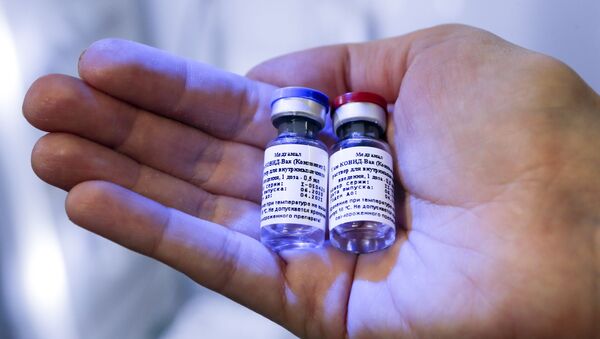The Russian Direct Investment Fund (RDIF) the investor which has funded the development of Russia's Sputnik V anti-coronavirus vaccine, could not comment on the halt of AstraZeneca trials, it said in a statement.
However, RDIF pointed out that the fund’s CEO Kirill Dmitriev had previously discussed the differences between the human adenoviral vector-based platform used in Russia’s Sputnik V vaccine and those used by some of their international colleagues, that rely on “novel unproven technologies such as monkey adenoviral vectors or mRNA”.
“The safety of the human adenoviral vector used in Sputnik V has been proven over decades in over 250 clinical studies, as human adenovirus has been shown to be the safest vaccine delivery mechanism and the most ‘organic for humans’, as human adenovirus has coexisted with humans for over 100,000 years,” RFID said.
Meanwhile, “mRNA and monkey adenoviral vector-based platforms have not been studied over a long period of time,” RDIF CEO Dmitriev pointed out this Tuesday.
Commenting on the so-called “pledge of safety” earlier voiced by the CEOs of AstraZeneca, BioNTech, GlaxoSmithKline, Johnson & Johnson, Merck, Moderna, Novavax, Pfizer and Sanofi in relation to the development of the first COVID-19 vaccines, Dmitriev stressed that this plea was “insufficient” as it did not “discuss the lack of long-term studies on the carcinogenic effects and impact on fertility of newly-developed vaccine technologies”.
“Since some of the companies developing these vaccines have taken the 'pledge of safety', we would like to stress that public health and safety requires not only short-term evidence of a lack of serious adverse effects, but also the safety and efficacy proved by the results of long-term studies," Dmitriev added.
AstraZeneca COVID-19 Vaccine Trials on Pause
It was revealed this week that the third round of trials for the AstraZeneca anti-COVID-19 vaccine has been halted due to a “potentially unexplained illness” which had developed in a participant in the United Kingdom, without further specifications about the nature of possible side effects. The vaccine in question was developed in partnership with Oxford University and has reportedly involved around 30,000 participants in the UK, US, Brazil and South Africa. AstraZeneca described the pause as "routine" one to allow for a “standard review process” of “safety data”.
Russia’s First Anti-Coronavirus Vaccine
On 11 August, Russia registered the world’s first vaccine against COVID-19, called Sputnik V, which was developed by the Gamaleya National Research Centre of Epidemiology and Microbiology and the RDIF after several rounds of clinical trials. On Monday, the vaccine was made available to the public.
According to RDIF, Russia has now received requests for 1 billion doses of the vaccine; at least 20 countries, including the UAE, Saudi Arabia, Indonesia, Philippines, Mexico, Brazil and India, have expressed an interest in obtaining Sputnik V.





